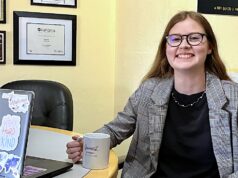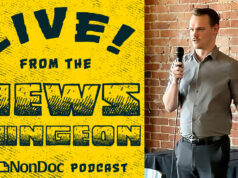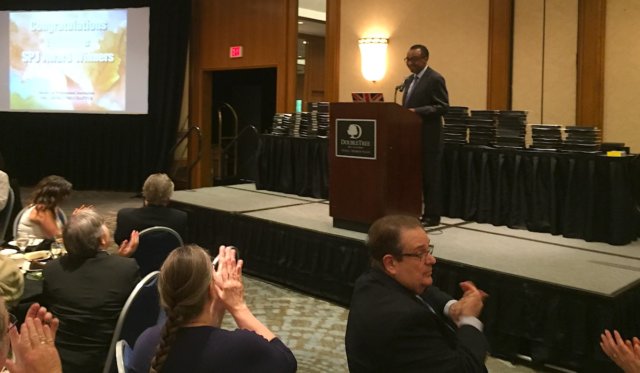

TULSA — During dinner Saturday at the Society of Professional Journalists’ Oklahoma chapter awards banquet, I pondered how to write about whatever recognition NonDoc ultimately received.
How could we thread the needle between gratitude, humility and pride to tell our readers and supporters that we had entered a contest and won something or another? Should we use humor? Should we hit just the facts with a wire-style post containing bulleted lists and little commentary? Or should we avoid navel-gazing altogether and write a typical Monday editorial about some civic issue?
Then, Clarence Page took the microphone.
“Journalism is in a crisis, ladies and gentlemen,” the Pulitzer-winning Chicago Tribune editorial board member said during a keynote speech that addressed several topics routinely discussed within NonDoc’s newsroom: an accelerated 24/7 news cycle, social media benefits and curses, angry readers and the seemingly growing belief that voices people disagree with should be muted.
“Even our crises have crises,” he said.
The 70-year-old Page smiled and drew laughter from the room, making me forget all about meritocracy and instead feel affirmed that such a revered veteran of the journalism game was contemplating the same industry ailments that I do.
“It’s called old age, children. Along with it comes wisdom,” he said.
NonDoc wins SPJ Oklahoma’s ‘best website’ award
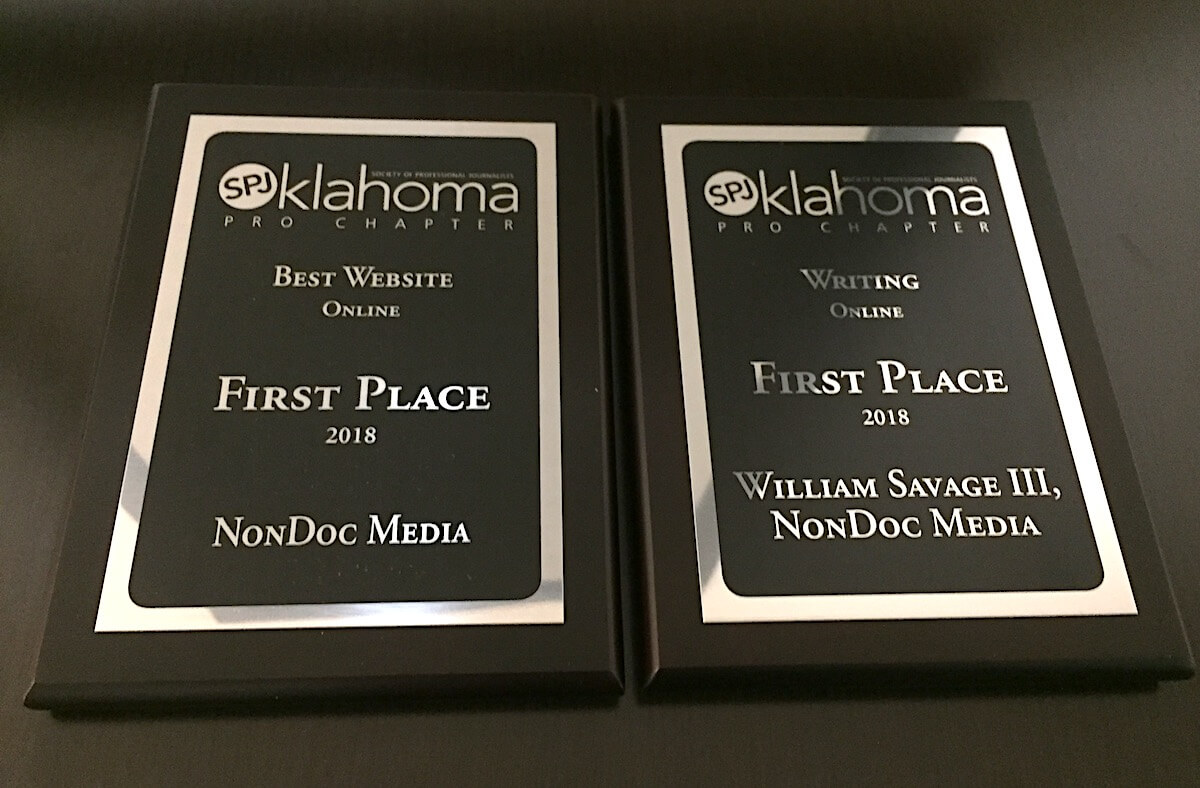
By Saturday night’s end, NonDoc had done better than we expected in the competition: sweeping SPJ Oklahoma’s “online writing” category, receiving third place for “website design” and being named “best website.”
The following stories were recognized for “online writing”:
- 3rd: Travis Brauer report: Boozy Snapchats, ‘wipe a phone before police’ by William W. Savage III
- 2nd: Jasmine Moran: A life of magic and kindness by Heide Brandes
- 1st: No Easy Days: Sgt. Keith Sweeney touted ‘warrior mindset’ with clothing line by William W. Savage III
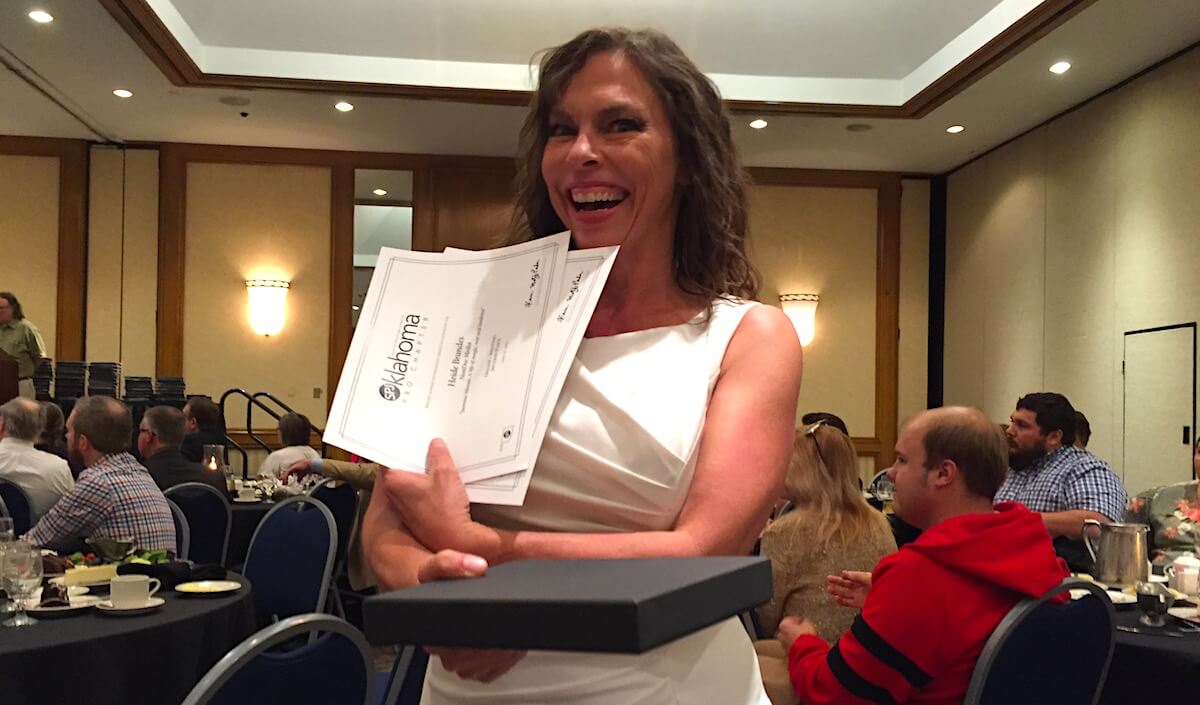
I didn’t know how many entries there had been in any of the categories, but as I texted with the rest of our staff, we were all honored to receive these awards, and we were grateful for the financial contributions offered by our Writers’ Fund supporters that covered the cost of our entries.
But as thankful as I was to have NonDoc recognized for our efforts, Page’s words kept running through my head.
He had touched on a number of potential watershed media moments currently facing our frustrated society. I decided I wanted to recount his observations here.
‘We all have our burdens’
When it comes to financing journalism, large and small publications are biting from different sides of the same squishy apple, and none of us are getting enough nutrition.
“Who knew that we would see so many closings of once-great newspapers, leaving us to turn to award-winning sites with such unlikely names as BuzzFeed, Yahoo and The Daily Beast. Wonderful journalists, but it’s a different era now,” Page said. “It used to be enough to come up with a clever lede for my column. Now I have to think of a clever tweet as well. But we all have our burdens.”
Indeed, I thought, wondering how many NonDoc pieces received fewer clicks or shares than they deserved because we couldn’t sum up their essence in a thrilling or click-baiting way on social media.
“Then there’s our identity crisis. The modern-day question: Who is a journalist?” Page pondered. “In an age when almost anyone can own and operate their own news site and carry the equivalent of a local TV news division in their smart phone, a lot of people think anybody can call themselves a journalist. And just about everybody does.”
Journalism identities are certainly fascinating, and sometimes they are awkward. People rarely know how to describe NonDoc. In casual conversation, even some of our strongest supporters appear flummoxed when trying to convince a third party to follow us on social media. “Is it a blog?” many ask.
Others describe me as “an investigative journalist,” a moniker I shy away from. I’ve never considered myself astute with data, and while I enjoy a good open records request, the article for which we won first-place Saturday night was the result of simply Googling a man’s name and going beyond the first page of results.
I suppose that could be considered “investigation,” but I’ve never understood the need to put creative adjectives in front of the word “journalism.”
Much of public ‘perpetually fed up’
Page said that journalism’s “identity crisis” is especially true in the midst of something else he discussed: “a crisis of the ‘perpetually fed up.’”
“Angry folks used to turn to pencil and paper — or paper and Crayon — to send us their gripes in a medium that could easily be tossed into the circular file and forgotten,” Page joked. “Now, they might come in digitally by the gigabyte, unless they are blocked, which us old-school types hate to do. You never know where that next tip is going to come from. For every 1,000 bad tips that come in, there is actually something that is worth reading.”
That, too, struck close to home. I recalled a time early in NonDoc’s existence where I asked a public relations professional to remove me from a distribution list owing to the volume of emails being sent. At the time, I did not realize how I might be burning a future bridge, nor did I realize how many emails and Facebook messages we would ultimately receive as we became better known. Our managing editor, Josh McBee, is always encouraging me to employ more email filters, but sometimes I mess those up and — to Page’s point — I worry that a big tip might get lost therein.
With the rest of the audience nodding along, Page then referenced the famous “I’m mad as hell, and I’m not going to take it anymore” speech from the movie Network.
“Now, the window is their log-in, and the shouting is, ‘I’m mad as hell, and I’m letting you know in ALL CAPS,’ followed by more exclamation points than even the late, great Tom Wolfe could imagine,” Page said to laughter.
‘The right to express unpopular views’
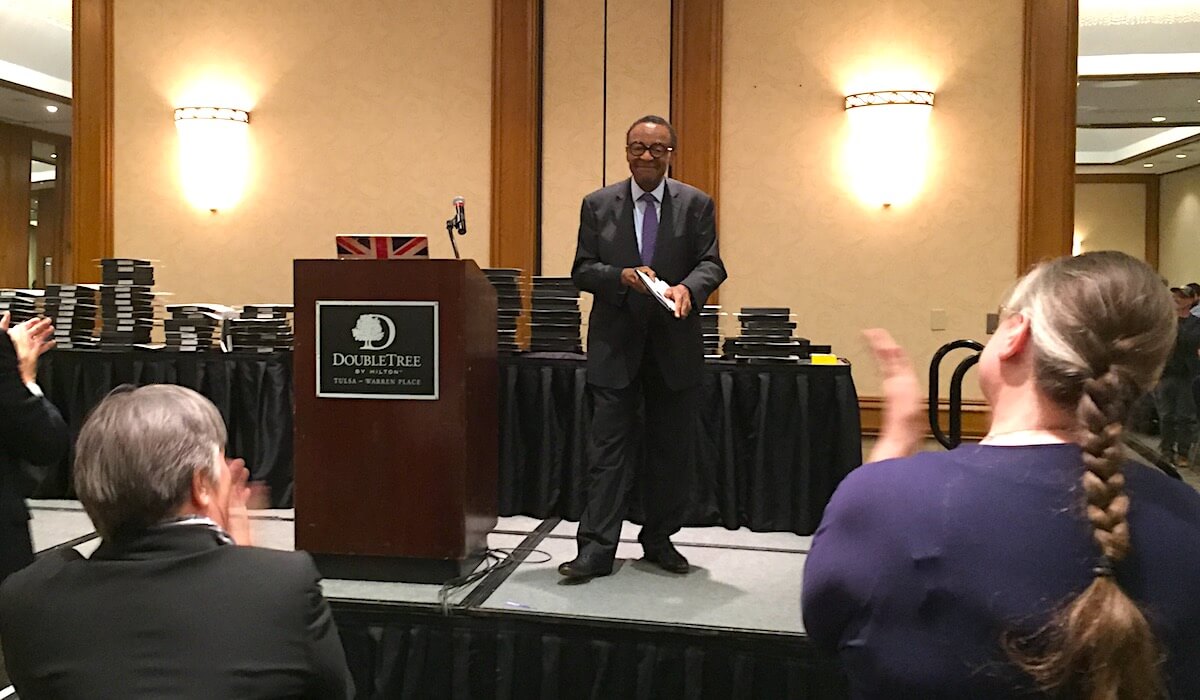
While his address lasted several more minutes and discussed many other topics, Page hit what I considered to be his best point of the night when recalling a conversation with his college-aged son.
“He shocked me one day by insisting that there was nothing wrong with left-progressive students blocking Milo Yiannopoulos and other controversial conservatives from speaking on college campuses,” Page relayed. “How dare they disturb the sanctity of his young friends on campus by expressing unpopular views, he said. I reminded him that the right to express unpopular views is the whole purpose of the First Amendment; that the right to express a diversity of views is what free speech is supposed to be all about.”
My heart beat faster, and I suddenly wished any of the room’s TV crews had been recording the speech for inclusion on NonDoc’s about page. Of late, you see, our social media pages have been full of readers chastising us for publishing commentary with which they disagree.
Page’s conversation with his son articulated the same discussion we attempt to have — respectfully — with those who are angry with us for publishing a voice or perspective different from theirs.
“‘Free speech,'” Page quoted his son as saying. “‘That’s just a right-wing cop-out phrase.’ I was crushed. I know it’s the obligation of every new generation to outrage their elders, but that’s just over the top.”
The room laughed, and then Page nailed the proverbial, prophetic punchline.
“The best response to objectionable speech is more speech,” he said. “It is the essence of a democratic society to have the right to hear about it and decide for yourself whether you agree. Instead of attempting to censor others, get your opinion together and let the other bad opinion die under the weight of its own irrationality.”
I couldn’t have said it better myself, so here’s a simple reminder for our readers: NonDoc serves as a responsible public forum for news and commentary. That means we publish (and label) commentary from across the political spectrum on innumerable issues. If anyone reads something they do not like, we are glad to publish their rebuttal. Simply email us at letters@nondoc.com.
I can’t say for sure, but I suspect our willingness to publish a variety of viewpoints is one reason we were recognized Saturday night by our peers.
But whatever the reason, thank you all for reading.
May I one day be as old and wise as Clarence Page.













